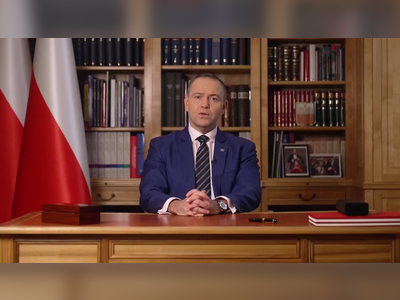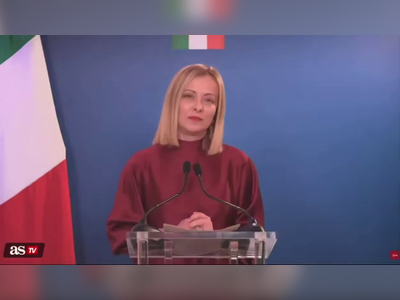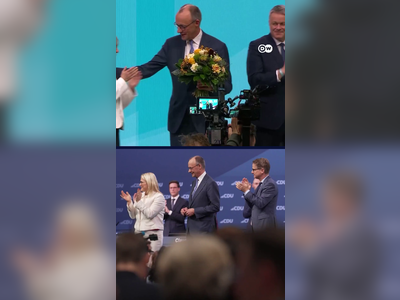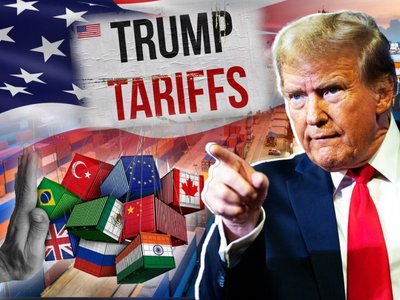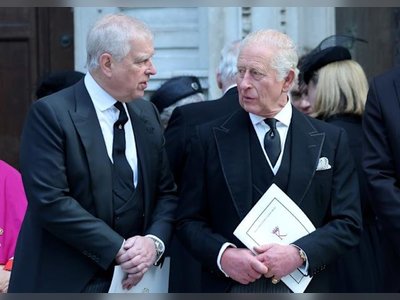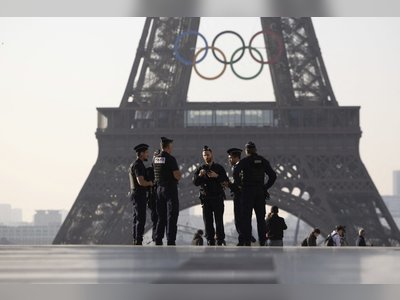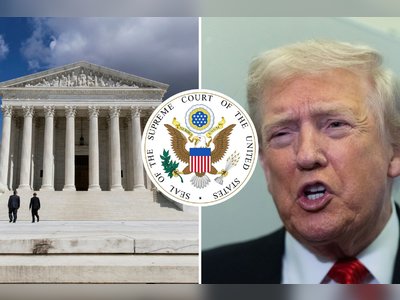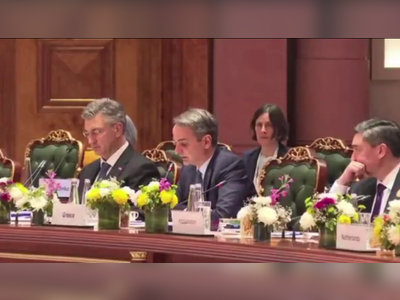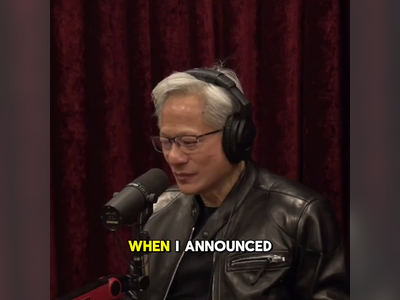Italia paralizzata: navigare tra gli scioperi dei trasporti pubblici e le tensioni politiche
Uno sguardo critico allo sciopero dei trasporti di dicembre e le sue implicazioni per il panorama socio-politico italiano.
L'Italia si prepara a un altro venerdì impegnativo con uno sciopero dei trasporti di 24 ore all'orizzonte, in programma dalle 21 di giovedì 12 dicembre, orchestrato dal sindacato di base Usb.
Questa protesta ha innescato nuove tensioni con Matteo Salvini, ministro delle infrastrutture italiano, che ha cercato di ridurre il disagio limitando lo sciopero a quattro ore, solo per vedere i suoi sforzi vanificati in un rinnovato scontro.
Lo sciopero mette in evidenza la lotta in corso tra i diritti dei lavoratori e l'autorità governativa, enfatizzando l'interplay volatile che caratterizza il regno socio-politico dell'Italia.
Le interruzioni del trasporto pubblico sono diventate una sfida periodica per la mobilità urbana in tutta Italia, con Milano e Roma che spesso diventano punti caldi urbani durante tali proteste.
Per lavoratori, studenti e imprese che dipendono fortemente dal trasporto pubblico, questi scioperi rappresentano un significativo sconvolgimento, sollevando riflessioni critiche sull'equilibrio tra i diritti dei lavoratori di protestare e la stabilità economica più ampia.
A livello globale, lo scenario dell'Italia rispecchia tensioni altrove dove i governi si impegnano in delicate negoziazioni per mantenere l'ordine pubblico mentre affrontano le lamentele dei lavoratori.
Le dinamiche sembrano tracciare particolari parallelismi con i recenti scioperi in Francia e le azioni industriali nel Regno Unito, sfidando i decisori politici a trovare soluzioni sostenibili che soddisfino sia i gruppi di lavoratori che richiedono un equo trattamento sia i cittadini che chiedono servizi affidabili.
Inoltre, l'Italia affronta la sua dipendenza dall'infrastruttura dei trasporti come parte delle sue più ampie politiche economiche e ambientali.
Gli investimenti recenti indicano un tentativo di modernizzare le reti di trasporto pubblico, per sostenere gli standard di emissioni dell'UE e ridurre la congestione urbana.
E tuttavia, questi scioperi evidenziano le persistenti sfide strutturali affrontate dall'Italia, richiedendo un approccio più trasformativo alle relazioni lavorative e alla resilienza infrastrutturale.
Mentre l'Italia si confronta con queste dispute lavorative, emergono domande sul ruolo del dialogo e della costruzione del consenso nel promuovere un cambiamento a lungo termine, non solo per mitigare le interruzioni immediate.
Le interventi di Salvini riflettono più ampie poste in gioco politiche, rendendo gli esiti di questo scontro non solo un indicatore di pace industriale, ma anche un metro della destrezza politica nel navigare il complesso tessuto socio-economico dell'Italia.
Quando la polvere si deposita, la domanda critica resta—l'Italia può tracciare un percorso di armoniose relazioni lavorative mentre si dirige verso un futuro prospero, o continueranno queste interruzioni cicliche a ostacolarne il passo?
Questa protesta ha innescato nuove tensioni con Matteo Salvini, ministro delle infrastrutture italiano, che ha cercato di ridurre il disagio limitando lo sciopero a quattro ore, solo per vedere i suoi sforzi vanificati in un rinnovato scontro.
Lo sciopero mette in evidenza la lotta in corso tra i diritti dei lavoratori e l'autorità governativa, enfatizzando l'interplay volatile che caratterizza il regno socio-politico dell'Italia.
Le interruzioni del trasporto pubblico sono diventate una sfida periodica per la mobilità urbana in tutta Italia, con Milano e Roma che spesso diventano punti caldi urbani durante tali proteste.
Per lavoratori, studenti e imprese che dipendono fortemente dal trasporto pubblico, questi scioperi rappresentano un significativo sconvolgimento, sollevando riflessioni critiche sull'equilibrio tra i diritti dei lavoratori di protestare e la stabilità economica più ampia.
A livello globale, lo scenario dell'Italia rispecchia tensioni altrove dove i governi si impegnano in delicate negoziazioni per mantenere l'ordine pubblico mentre affrontano le lamentele dei lavoratori.
Le dinamiche sembrano tracciare particolari parallelismi con i recenti scioperi in Francia e le azioni industriali nel Regno Unito, sfidando i decisori politici a trovare soluzioni sostenibili che soddisfino sia i gruppi di lavoratori che richiedono un equo trattamento sia i cittadini che chiedono servizi affidabili.
Inoltre, l'Italia affronta la sua dipendenza dall'infrastruttura dei trasporti come parte delle sue più ampie politiche economiche e ambientali.
Gli investimenti recenti indicano un tentativo di modernizzare le reti di trasporto pubblico, per sostenere gli standard di emissioni dell'UE e ridurre la congestione urbana.
E tuttavia, questi scioperi evidenziano le persistenti sfide strutturali affrontate dall'Italia, richiedendo un approccio più trasformativo alle relazioni lavorative e alla resilienza infrastrutturale.
Mentre l'Italia si confronta con queste dispute lavorative, emergono domande sul ruolo del dialogo e della costruzione del consenso nel promuovere un cambiamento a lungo termine, non solo per mitigare le interruzioni immediate.
Le interventi di Salvini riflettono più ampie poste in gioco politiche, rendendo gli esiti di questo scontro non solo un indicatore di pace industriale, ma anche un metro della destrezza politica nel navigare il complesso tessuto socio-economico dell'Italia.
Quando la polvere si deposita, la domanda critica resta—l'Italia può tracciare un percorso di armoniose relazioni lavorative mentre si dirige verso un futuro prospero, o continueranno queste interruzioni cicliche a ostacolarne il passo?
Translation:
Translated by AI
AI Disclaimer: An advanced artificial intelligence (AI) system generated the content of this page on its own. This innovative technology conducts extensive research from a variety of reliable sources, performs rigorous fact-checking and verification, cleans up and balances biased or manipulated content, and presents a minimal factual summary that is just enough yet essential for you to function as an informed and educated citizen. Please keep in mind, however, that this system is an evolving technology, and as a result, the article may contain accidental inaccuracies or errors. We urge you to help us improve our site by reporting any inaccuracies you find using the "Contact Us" link at the bottom of this page. Your helpful feedback helps us improve our system and deliver more precise content. When you find an article of interest here, please look for the full and extensive coverage of this topic in traditional news sources, as they are written by professional journalists that we try to support, not replace. We appreciate your understanding and assistance.

